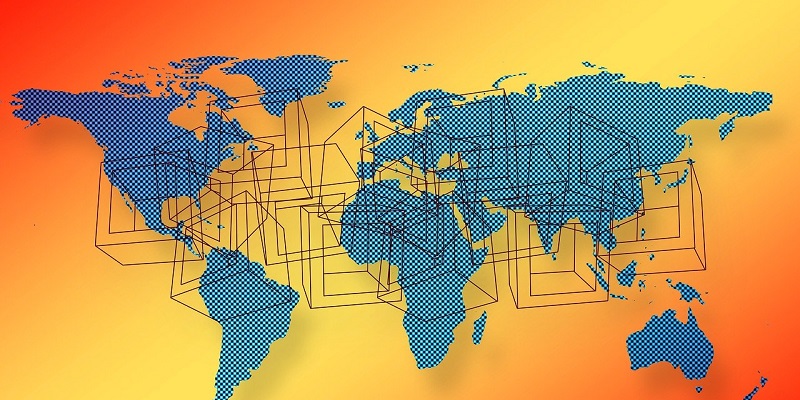Blockchain technology has gained significant attention in recent years as the underlying technology of cryptocurrencies like Bitcoin. At its core, blockchain offers a decentralized, secure, and transparent way to conduct transactions. Unlike traditional financial systems that rely on intermediaries like banks, blockchain eliminates the need for intermediaries, thus reducing transaction costs and increasing efficiency.
Advantages of Decentralization
One of the key advantages of blockchain lies in its decentralized nature. By eliminating intermediaries, blockchain reduces transaction costs and streamlines the entire process. In traditional financial systems, intermediaries often add layers of complexity and fees, which can slow down transactions and increase costs. With blockchain, parties can transact directly with each other, enhancing the speed and efficiency of financial interactions.
Vulnerabilities of Traditional Financial Systems
Traditional financial systems are highly vulnerable to hacks and fraudulent activities due to their centralized nature. Centralized databases are attractive targets for hackers, and countless instances of data breaches and financial fraud have plagued the financial industry. By decentralizing transactions through blockchain, individuals maintain control over their own data, reducing the risk of unauthorized access and enhancing security.
Verification and Legitimacy
One of the key features of blockchain technology is the verification of transactions by network nodes. Before a transaction is added to the blockchain, it goes through a consensus mechanism where network nodes independently validate its legitimacy. This consensus mechanism ensures the trustworthiness and immutability of transactions, creating a transparent and tamper-proof record of financial activities.
Automation with Smart Contracts
Smart contracts are another innovative application of blockchain technology. These self-executing contracts automatically fulfill predefined terms and conditions, eliminating the need for intermediaries and human intervention. Smart contracts can automate various processes, such as loan approvals, insurance claims, and investment management, reducing administrative costs and improving efficiency within the financial industry.
Banking Services for the Unbanked Population
Blockchain technology has the potential to bridge the gap between the banked and unbanked populations around the world. Traditional banking services are often inaccessible to the unbanked due to factors such as high fees, lack of infrastructure, and documentation requirements. Blockchain-based solutions offer a cost-effective and secure way for unbanked individuals to participate in the global economy, providing access to financial services that were previously unavailable to them.
Cost-Effective and Secure Solutions
With blockchain, unbanked individuals can have access to services such as payments, remittances, and lending without relying on traditional banking systems. Blockchain technology offers lower transaction fees and reduced overhead costs, making financial services more affordable and accessible for marginalized populations. This democratization of financial services has the power to transform lives and drive economic growth in underserved regions.
Revolutionizing cross-border transactions
Cross-border transactions often face challenges such as slow processing times, high fees, and a lack of transparency. Blockchain technology has the potential to eliminate these challenges by enabling near-instant, low-cost, and secure transfers. With blockchain, transactions can be processed more efficiently, reducing the reliance on intermediaries and enabling smoother cross-border financial interactions.
Tokenization of Real-World Assets
Another groundbreaking application of blockchain technology is the tokenization of real-world assets. Assets such as real estate, fine art, and commodities can be represented as digital tokens on a blockchain. These tokens can be easily traded, enabling fractional ownership and unlocking investment opportunities previously inaccessible to retail investors. The tokenization of assets has the potential to revolutionize investment markets by increasing liquidity, reducing barriers to entry, and improving market efficiency.
Future possibilities
As regulatory frameworks continue to evolve, we can expect to see even more innovative applications of blockchain technology in financial services. Governments and regulatory bodies are recognizing the potential of blockchain to streamline processes, enhance security, and improve financial inclusivity. With increasing adoption and clearer regulations, blockchain technology is poised to reshape traditional financial systems, ushering in a new era of efficiency, transparency, and trust.
Blockchain technology holds immense promise for the financial industry. With its decentralized, secure, and transparent nature, blockchain has the potential to revolutionize traditional financial systems. From reducing transaction costs and vulnerabilities to enabling financial inclusion and expanding investment opportunities, blockchain is poised to transform the way we conduct financial transactions. As the technology continues to mature and regulatory frameworks adapt, we can expect to witness even more innovative and transformative applications of blockchain in the financial services sector.

